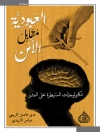In ‘On War, ‘ Carl von Clausewitz offers a profound examination of war’s complex nature, blending philosophical inquiry with historical analysis. Written in the early 19th century, this seminal work articulates a comprehensive theory of warfare, emphasizing the interplay between political objectives and military strategy. Clausewitz’s literary style is characterized by an analytical rigor and an engaging narrative that illuminates the often chaotic and unpredictable dynamics of conflict. His famous aphorism, ‘War is merely the continuation of politics by other means, ‘ encapsulates his belief that war cannot be understood in isolation from the social and political contexts from which it arises. Carl von Clausewitz was a Prussian general and military theorist whose experiences in the Napoleonic Wars profoundly shaped his understanding of warfare. His background in the military, combined with his extensive studies in philosophy and history, provided him with a unique perspective on the nature of conflict and its implications for society. Clausewitz’s insights reflect a deep engagement with contemporary military thought and an unyielding commitment to uncovering the truths behind the phenomena of war. ‘On War’ remains an essential text for anyone interested in military strategy, history, or political theory. Its relevance endures, as it addresses fundamental questions about the nature of human conflict, making it indispensable for scholars, military professionals, and informed readers alike.
About the author
Carl von Clausewitz (1780–1831) was a Prussian general and military theorist renowned for his seminal work, ‘On War’ (Vom Kriege), which remains one of the most important treatises on military strategy and warfare philosophy to this day. Born in Burg bei Magdeburg, Prussia, Clausewitz entered the Prussian army at the age of twelve and quickly ascended through the ranks, participating in the Napoleonic Wars. His experiences in battle profoundly shaped his intellectual pursuits and writing, leading to his exploration of the complexities of warfare. ‘On War’ is an unfinished masterpiece, published posthumously by his wife, Marie von Brühl, in 1832. In this magnum opus, Clausewitz presents a theory of war that is rooted in the concept of the ‘remarkable trinity’—the interplay between reason, chance, and emotion. He posits the famous dictum that war is a mere continuation of politics by other means, emphasizing the interdependence of political objectives and military tactics. His work transcends the era he lived in, influencing both historical and contemporary military strategic thinking, and has been extensively studied by military leaders and theorists around the world. Clausewitz’s literary style in ‘On War’ is both philosophical and dense, often characterized by its abstraction and insistence on the complex, fluid nature of military conflict. The impact of Clausewitz’s ideas on military theory and their perpetual relevance to the studies of strategy and security make him an enduring figure within both historical and modern military scholarship.












